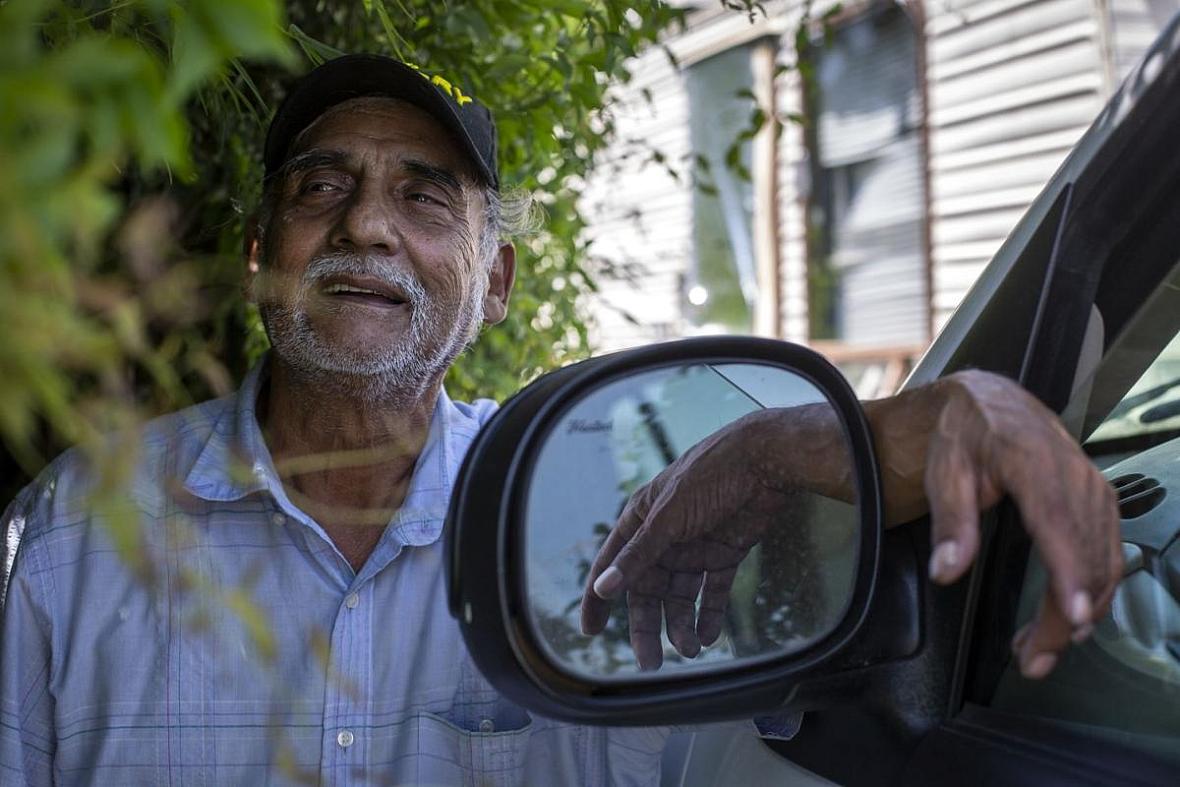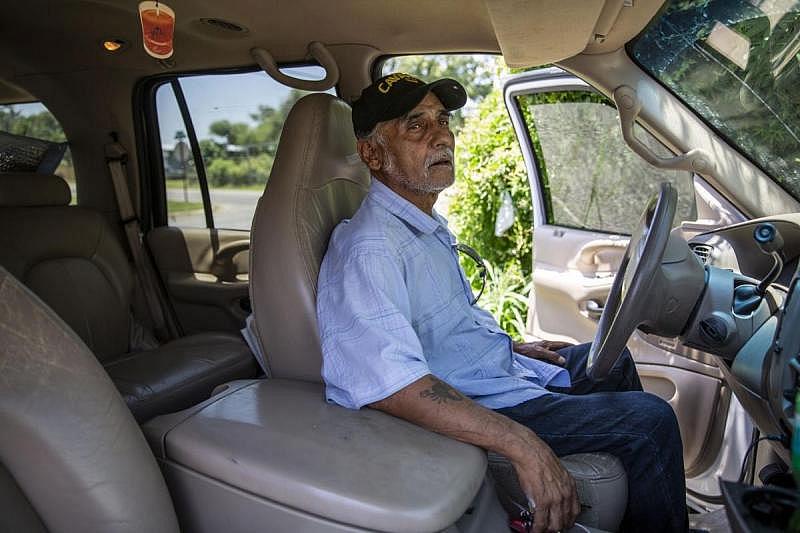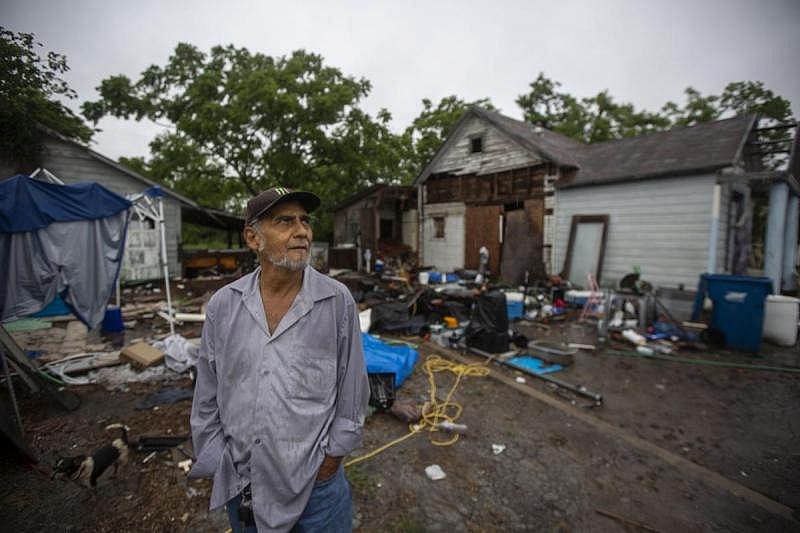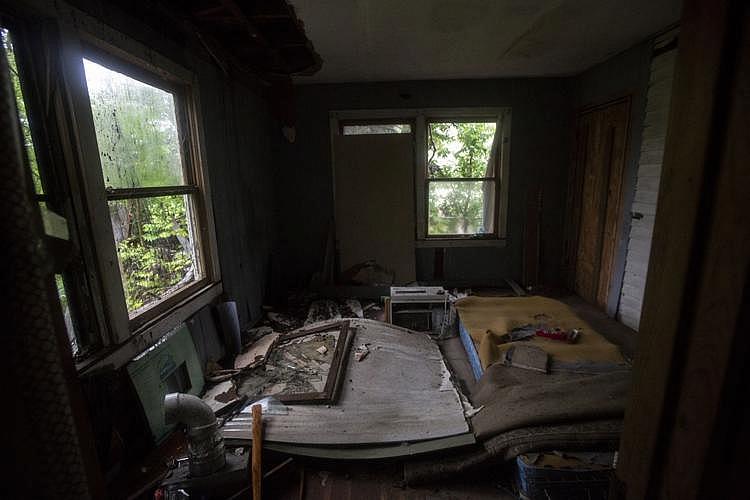More than one year after Harvey, Vietnam veteran still living in his car
This article was produced as a project for the University of Southern California Center for Health Journalism’s National Fellowship.
Other stories in this series include:
Christmas miracle arrives for family struggling to rebuild after Harvey
PART 4: Will small towns recover after Harvey? It's a matter of if, not when
11 years have passed since affordable housing was built in Victoria; advocates say change needed
Part 3: Mold, bedbugs, rising rents — the reality of renting post-Harvey
Part 2: 'Willful blindness:' After Harvey, a Victoria family feels forgotten
Volunteers help Vietnam veteran living in car after Harvey
Hurricane Harvey exposed the gap between people who could afford to rebuild — and everyone else
Rebuilding after Harvey: 'You have to build their lives — not just their homes'
Reporter column: We listened to your stories about life after Harvey. Now it's your turn to act.
'We just got so much work to do': Number of homeless outside of shelters triples in Victoria

Reynaldo Garza leans against his 2002 Ford Expedition. The 70-year-old purchased the SUV to escape from the heat and and have a place to sleep parked in front of his Hurricane destroyed home in Woodsboro. Garza said he used $3,000 FEMA gave him to rebuild his home, to purchase a trailer home, which was later damaged in a different storm. (Photo: Angela Piazza/Victoria Advocate)
WOODSBORO – Most mornings, Reynaldo Garza, 70, wakes to sunlight streaming in through the window of his 2002 Ford Expedition.
The Vietnam veteran then ventures to a nearby convenience store to buy breakfast – one of three places to buy food in Woodsboro, a sleepy South Texas town of about 1,500 people. He uses the bathroom there, too, then returns to his car to eat.
When the wicked Texan sun becomes too much to bear, he flees to a nearby air-conditioned laundromat to cool down and wash clothes. In the evenings, Garza’s routine is simple. A hose serves as his shower. The white SUV serves as his dining room, living room and bedroom. From the backseat, he watches movies from a DVD player until he falls asleep.
But Garza’s life hasn’t always been like this. He used to sleep in a bed. In a home. That was until Hurricane Harvey struck, when the 70-year-old lost his home and almost everything he owned.

More than one year after Hurricane Harvey slammed the Texas Gulf Coast, many homeowners who have the resources to rebuild have largely moved on. But for people like Garza, who is a senior with a limited income, making himself whole seems next to impossible.
For the last year, Garza’s home has been deteriorating on his Woodsboro property since a section of the ceiling caved in, ruining his furniture and many of his belongings. Tarps, gas cans and pieces of plywood still litter his front yard. To someone who didn’t know any better, it looks as if Harvey hit yesterday. Not a year ago.
U.S. Army veteran Reynaldo Garza, 70, stands in front of his house at 305 Locke St. in Woodsboro. The home was destroyed in Hurricane Harvey, forcing Garza to live in his vehicle. (Photo: Angela Piazza/Victoria Advocate)
An aging travel trailer, which Garza bought immediately after the storm to serve as a short-term shelter, sits outside his home. But the generator powering the trailer soon broke down. Without the ability to heat or cool the space, he moved into his car. That was more than six months ago.
“I need a home to sleep,” said Garza, who relies on monthly assistance from the U.S. Department of Veterans Affairs. “I mean, I’m not asking for much – a trailer, a small house, a two-bedroom house – whatever.”
A slight, reserved man, Garza, like many seniors struggling after Harvey, didn’t want to have to ask for help. But while taking shelter in the local laundromat one day, he started talking with another Woodsboro resident. She had blond hair and a warm smile and told him her name was Debbie Montalvo.
The woman explained that she works for an agency that’s trying to help Refugio County residents rebuild after Hurricane Harvey. She said she would try her best to help him.
Broken glass from a window is scattered around a bedroom in Reynaldo Garza’s Woodsboro home. (Photo: Angela Piazza/Victoria Advocate)
So far, however, few volunteers have come to Refugio, the county where Garza lives. Instead, Refugio, which has just 7,300 people, must compete with larger communities like Houston and Rockport for resources to rebuild. The Refugio County Volunteer Reception Center, where Montalvo works, has received only $825,000 but estimates it needs roughly $4 million to help all of the families become whole.
That means until more volunteers and funding arrive, people like Garza will wait in limbo.
But Montalvo said she’s doing her best to stop that from happening. Even if it takes ripping out moldy drywall herself, Montalvo said she plans to do all she can to help people like Garza rebuild.
“I know it is a slow process after Hurricane Harvey,” said Montalvo. “But we are not quitters.”
Tell us your story
Did Hurricane Harvey hurt you financially? Was there a program that was especially helpful to you? Have thoughts about ways to help families thrive economically? Tell us about it by filling out this form.
[This story was originally published by Victoria Advocate.]

